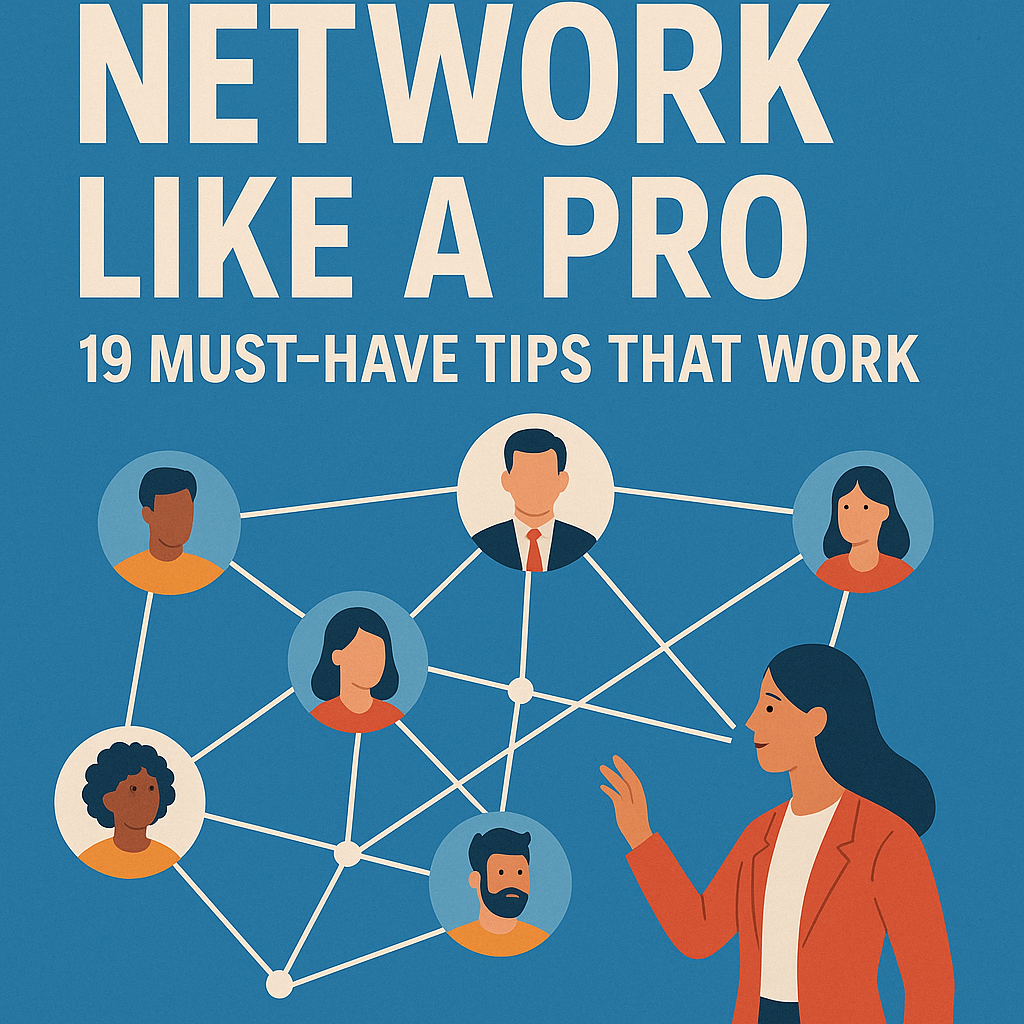How to Network Like a Pro: 19 Must-Have Tips That Work
How to Network Like a Pro: 19 Real-World Tips That Actually Work
Networking is an essential skill that can open doors to new opportunities, collaborations, and career growth. Mastering how to network like a pro requires more than just attending events and handing out business cards; it’s about building genuine relationships that bring mutual value. Whether you are an introvert or extrovert, a student or a seasoned professional, these 19 real-world tips will help you connect effectively and create lasting impressions.
1. Prepare Your Elevator Pitch
Before diving into a conversation, have a concise and compelling introduction ready. This “elevator pitch” should summarize who you are, what you do, and what you are looking for—all in about 30 seconds. A well-prepared pitch gives you confidence and sets the tone for meaningful dialogue.
2. Focus on Quality Over Quantity
Networking isn’t about collecting as many contacts as possible; it’s about forming meaningful relationships. Instead of trying to meet everyone, aim to connect deeply with a few individuals who align with your goals and values.
3. Be Authentic and Genuine
People can sense insincerity. When you approach networking with authenticity, you are more likely to foster trust and rapport. Share your story, listen actively, and express genuine interest in others’ experiences.
4. Attend the Right Events
Not all networking opportunities are created equal. Identify events, conferences, or meetups relevant to your industry or interests. Attending these targeted events increases your chances of meeting people who can truly impact your career or personal growth.
5. Listen More Than You Speak
Effective networking involves being a great listener. Instead of dominating the conversation, ask open-ended questions and listen attentively. This not only helps you learn but also shows respect and interest in the other person.
6. Use Social Media Strategically
Platforms like LinkedIn, Twitter, and industry-specific forums are powerful tools for networking. Share valuable content, engage with posts, and reach out with personalized messages rather than generic connection requests.
7. Follow Up Promptly
After meeting someone, send a follow-up message within 24-48 hours. Mention something specific you discussed to jog their memory and express your interest in keeping in touch. Consistent follow-up solidifies new connections.
8. Offer Value First
Networking works best when you approach it with a giving mindset. Offer your expertise, share resources, or introduce contacts who could benefit from each other’s work. When you add value, people are naturally more willing to reciprocate.
9. Maintain an Organized Contact List
Keep track of your contacts, their interests, and when you last connected. Tools like CRM apps or even a simple spreadsheet can help you nurture relationships without letting them slip away.
10. Practice Your Body Language
Non-verbal cues play a significant role in how you are perceived. Maintain good eye contact, stand tall, offer a firm handshake, and smile. Positive body language conveys confidence and openness.
11. Be Patient and Persistent
Building a strong network doesn’t happen overnight. It requires patience, regular engagement, and sometimes multiple interactions before trust develops. Don’t get discouraged if initial efforts don’t yield immediate results.
12. Leverage Mutual Connections
If you admire someone or want to connect with a particular professional, see if you have mutual contacts who can introduce you. Warm introductions increase your chances of making a meaningful connection.
13. Volunteer or Join Committees
Getting involved in industry associations or volunteering for events places you in environments rich with networking opportunities. Plus, shared experiences create natural bonding moments.
14. Keep Up With Industry Trends
Staying informed about your field not only enhances your conversations but also establishes you as a knowledgeable and valuable contact. Discussing recent developments can spark engaging discussions and show your enthusiasm.
15. Be Respectful of Time
Whether in person or virtually, respect others’ time and energy. Keep initial meetings brief unless others indicate they’re open to longer discussions. Quality conversations don’t have to be lengthy.
16. Develop a Follow-Up Strategy
Beyond the initial message, plan periodic check-ins that feel natural—sharing interesting articles, congratulating on accomplishments, or inviting to relevant events. This ongoing communication keeps relationships alive.
17. Embrace Diversity in Your Network
Broaden your horizons by connecting with people from different industries, cultures, and backgrounds. Diverse networks expose you to new ideas, opportunities, and perspectives.
18. Handle Rejections Gracefully
Not every outreach will be met with enthusiasm, and that’s okay. Don’t take rejection personally; maintain professionalism and keep cultivating other connections.
19. Practice Networking Regularly
Like any skill, networking improves with practice. Challenge yourself to attend events, strike up conversations with strangers, and refine your approach continually.
Networking is less about strategy and more about sincerity, consistency, and meaningful interactions. By integrating these 19 tips into your approach, you’ll not only expand your network but also build relationships that help fuel your personal and professional success. Remember, networking like a pro is a journey—not a one-time effort—and the most rewarding connections are those that grow over time with mutual respect and genuine care. www.MichaelAForman.com.







